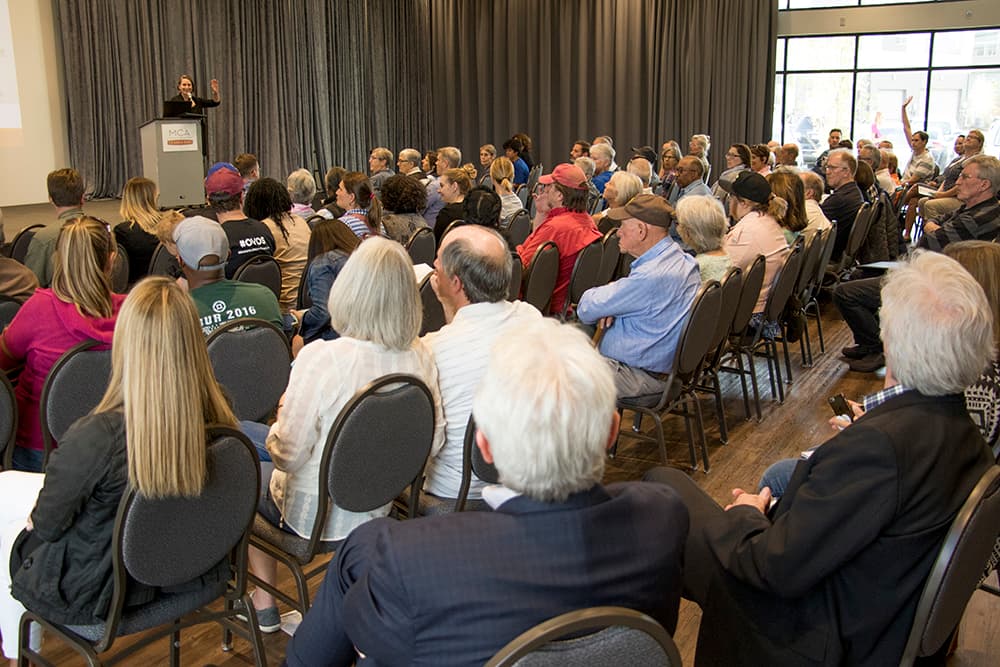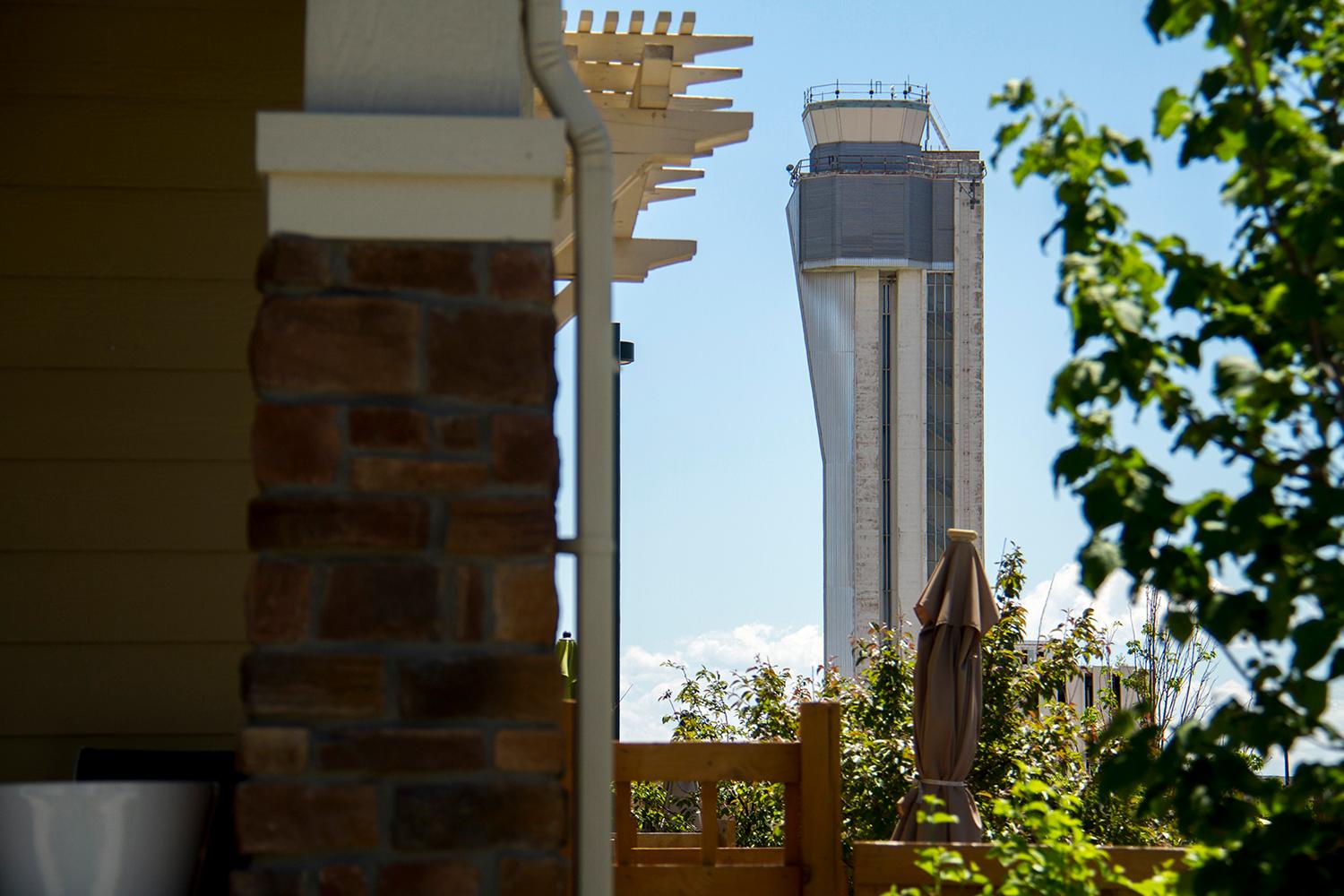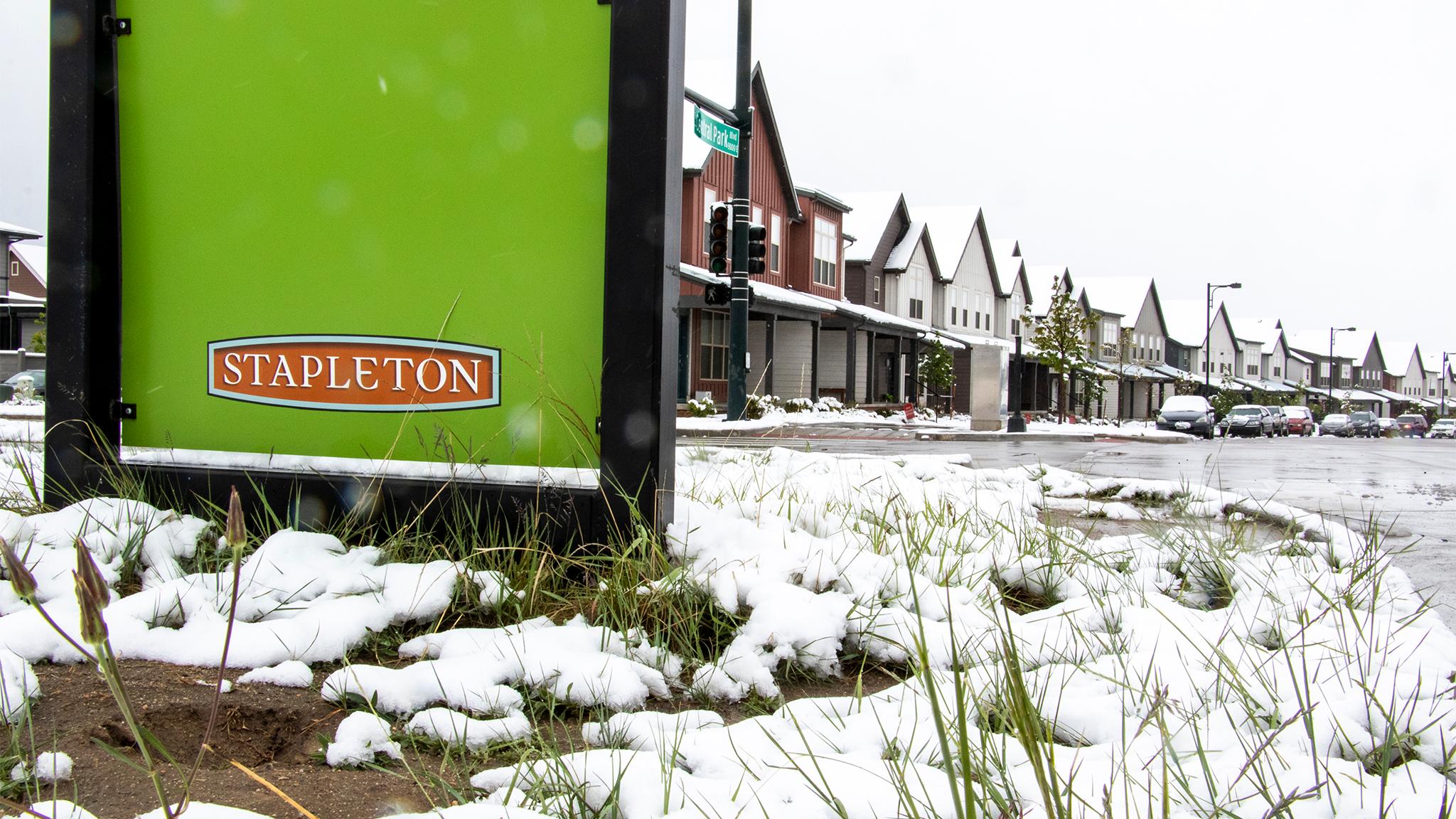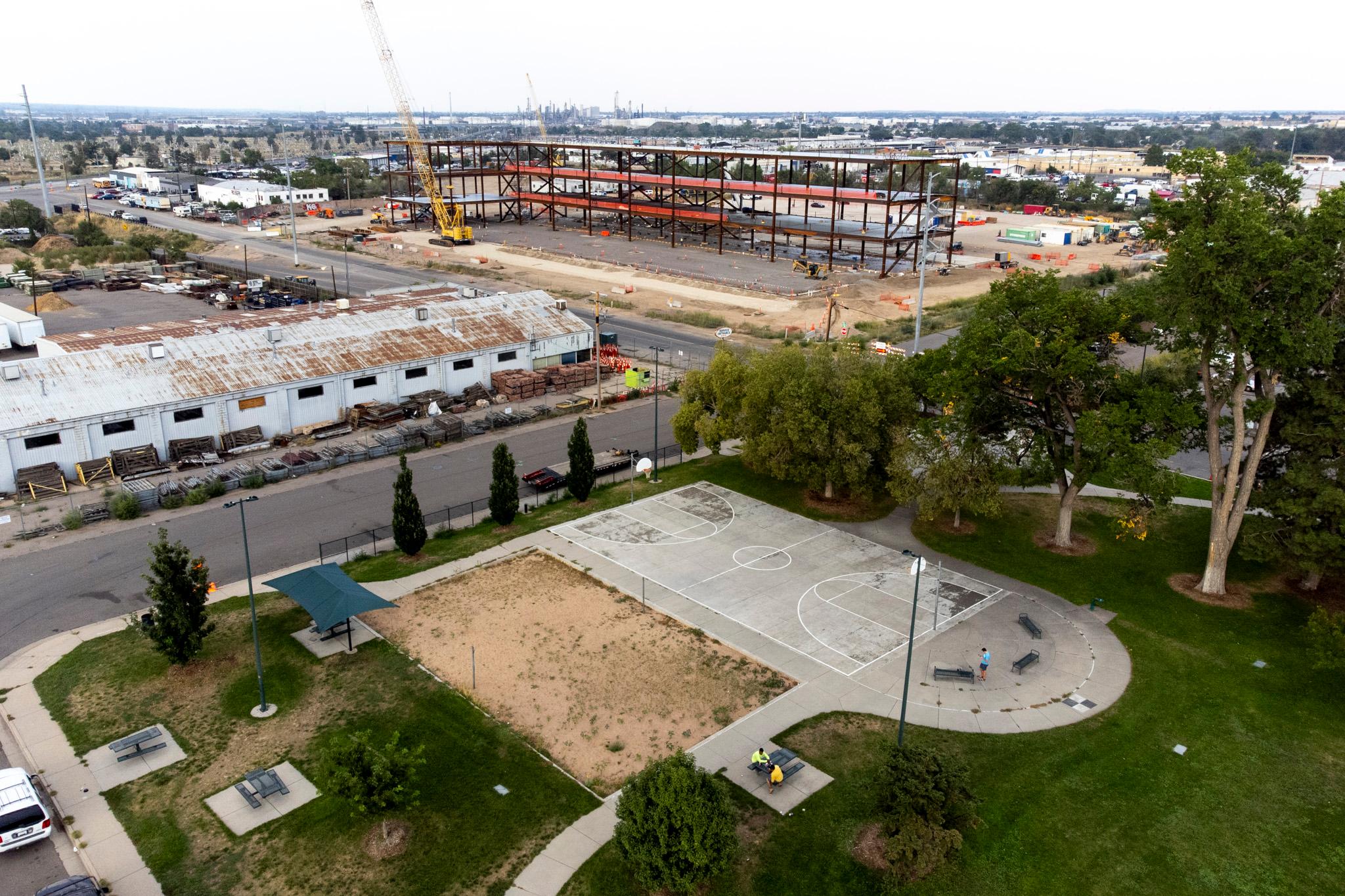Stapleton property owners this summer will get a chance to vote on whether to rename the neighborhood -- the latest chapter of a years-long debate over whether keeping it upholds a racist legacy.
The Master Community Association is putting finishing touches on a referendum asking if the Stapleton name should be legally removed from a section in the neighborhood's Covenants, Conditions & Restrictions document created in 2001, executive director Keven Burnett said.
Over the past few years, community members have had conversations about the name and its connections to the city's racist past. The neighborhood got its name in the early aughts when it was being built around the former Stapleton Airport, which got its name from former Denver Mayor Benjamin F. Stapleton, who was a member of the Ku Klux Klan and installed Klan members throughout city government.
Last week, DSST took the name its Stapleton school and changed it to Montview at the behest of its students. In May 2018, Stapleton United Neighbors voted on whether to change their name, but the movement to do so fell short by 38 votes.
This summer's referendum would represent the neighborhood's most dramatic step toward confronting that legacy. Removing the name from a key legal document would pave the way to providing a new name.
The Master Community Association oversees the maintenance and operation of the neighborhood's public spaces, including parks, and is responsible for hosting community-wide events. The Covenants, Conditions & Restrictions document sets local rules, defines the community, and outlines how the neighborhood is supposed to operate.
Liz Stalnaker is affiliated with the group Rename St*pleton for ALL and has advocated for a name change. She said she would have liked to see "a more thoughtful process and authentic community engagement" in the way it was presented to voters. She said DSST: Montview set a good model of how to go about changing the name.
But bottom line: she wants the neighborhood's name change.
"I want to live in a community that has a name that does not honor a Klan member,"Stalnaker said.
Councilman Chris Herndon, a Stapleton resident, wasn't immediately available for comment on Wednesday evening due to prior commitments. But his office said he still believes what he's said in the past: Any potential changes should be left to the community.
He said in 2017 that the neighborhood's name to him doesn't incite divisiveness, but rather represents the community.
"When I think of the name Stapleton, I think of a community," Herndon told Denverite in December 2017. "When I knocked on my neighbors' doors, I remember their warm embrace. It was welcoming. It's not a name that does anything other than bring up positive memories, in my personal experience."
There are a few complexities to this vote.
Not everyone in Stapleton will get a chance to vote. Only property owners get a say, which means residents who rent can't participate.
Burnett said these rules are outlined in the Covenants, Conditions & Restrictions.

This rule also means it's possible some people will get multiple votes. Property owners are given one vote per residential property owned. Commercial property owners get one vote for every 2,000 square-feet they own, while apartment building owners will get one vote for every five apartments they own.
Burnett estimated a vast majority of properties in Stapleton are owner-occupied, though there are some residential properties rented or commercial properties leased. It means the ballot could be mailed out to property owners outside the city and county limits and even outside the state.
Right now, the Master Community Association's document shows the neighborhood has 8,320 residential properties, 1,838 commercial properties and 405 apartments.
It's not a straightforward popular vote, either.
Voters will be choosing how they want delegates -- who make up a community delegate board representing one of 10 districts in the neighborhood -- to vote. So if a majority of voters in one district vote to support the name change, the delegate representing this district would be bound to support the results in that district.
But that only works if a quorum is met in each of the 10 districts. At least 10 percent of the voters in each district must participate in the referendum. For example, District 1 has 823 available votes. At least 82 votes need to be returned in order for the results to dictate the delegate's vote. Burnett said if the quorum isn't reached in each district, a delegate is allowed to vote as they wish, as opposed to how the majority of voters there have decided.
Voting begins June 1 and ends July 15.

Burnett said that when the conversation about a name change sprung up in a few years ago, he wanted people to know the Master Community Association would play a central role. He said he's remaining neutral on the name change.
"We brought up the fact that if they really wanted to change it, we were the vessel because it was our document," Burnett said.
He doesn't expect any confusion with the citywide runoff election -- it's a completely different ballot and he says the neighborhood's referendum will be clearly marked.
"This is really about changing the name of the community as it legally exists," Burnett said.
But wait, there's more.
Those Master Community Association ballots will also include a question about whether to enact a one-time assessment Burnett said will total $43 per property to pay for rebranding the neighborhood and pay for legal costs.
A third question will ask voters to change the process for a future name change.
Change won't be instant, if it comes at all.
If a vote to remove the name passes, the change would trigger a process Burnett expects will take at least a year to implement.
For one thing, they'll need to come up with a new name. The ballot will include a suggestion page.
"I don't expect this to be an easy task," Burnett said.













